- HOW WE SERVE
- PROPERTIES
- COMPANY
- RESOURCES
- CONTACT
- MANHATTAN
- MIAMI
- Properties
- Manhattan
- Quick Searches
- NYC Townhouses for Sale
- TOP 50 NYC Penthouses for Sale
- Apartments for Sale in Manhattan: Where to Buy
- Manhattan Most Expensive Apartments
- NYC New Developments for Sale
- 100 Newest Co-Ops for Sale
- Manhattan Neighborhood Searches
- Upper East Side Apartments for Sale
- Upper West Side Apartments for Sale
- Chelsea Apartments for Sale
- Hudson Yards Apartments for Sale
- Billionaire's Row Apartments for Sale
- Midtown East Apartments for Sale
- NoMad Apartments for Sale
- Gramercy Apartments for Sale
- Tribeca Apartments for Sale
- East Village Apartments for Sale
- SoHo Apartments for Sale
- Financial District Apartments for Sale
- West Village Apartments for Sale
- All Listings
- Search Properties by Neighborhoods
- Manhattan Buildings
- Brooklyn
- The Greenpoint
- 11 Hoyt
- Austin Nichols House
- Quay Tower
- The Edge North Tower
- Pierhouse
- Polhemus Residences
- One Clinton
- On Prospect Park
- The Clocktower
- One Brooklyn Bridge Park
- 1 John Park
- Oosten
- Brooklyn Point
- Two Northside Piers
- The Edge South Tower
- One Northside Piers
- J Condominium
- The Standish
- 550 Vanderbilt
- Central Park South
- Chelsea
- Walker Tower
- Chelsea Enclave
- 345 Meatpacking
- The Seymour
- 35 XV
- D'Orsay
- The Flynn
- Chelsea Mercantile
- Chelsea Stratus
- The O'Neill Building
- Yves Chelsea
- 520 West 28th St
- 551 W21
- 200 Eleventh Avenue
- 100 Eleventh
- The Ghetty
- 505 West 19th St
- 508 West 24th St
- Soori High Line
- Jardin
- 515 High Line
- Five Sixty
- Art
- Caledonia
- 456 West 19th St
- 245 Tenth Avenue
- The XI
- ABI Chelsea
- The Emerson
- Lantern House
- East Village
- Financial District
- Flatiron
- Gramercy
- Greenwich
- Hudson Yards
- Lincoln Square
- 15 Central Park West
- Mandarin Oriental Residences
- Time Warner Center
- Trump International
- The Park Lurel
- The Century
- 30 Lincoln Plaza
- Millennium Tower
- Element
- Park Millenium
- Grand Millenium
- One West End
- Rushmore
- Aldyn
- Two Waterline Square
- One Waterline Square
- Three Waterline Square
- 45 W 67th St
- One Lincoln Plaza
- Hudson Condo
- 3 Lincoln Center
- One Lincoln Square
- Lower East Side
- Midtown
- Midtown East
- Murray Hill
- NoHo
- Nolita
- NoMa
- NoMad
- Soho
- 42 Crosby Street
- Xoco 325
- 40 Mercer
- Soho Mews
- One Kenmore Square
- 10 Sullivan St
- One VanDam
- 360 West Broadway
- 150 Wooster
- 570 Broome
- 565 Broome
- 77 Charlton
- 70 Charlton
- 255 Hudson
- Urban Glass House
- 505 Greenwich
- Spice Warehouse
- The Greenwich Street Project
- Greenwich West
- 63 Greene St
- 20 Greene St
- 95 Greene St
- The Loft
- 27 Wooster
- Tribeca
- 101 Warren
- 200 Chambers
- 250 West
- 56 Leonard
- 443 Greenwich
- 70 Vestry
- The Hubert
- Four Seasons Residences
- 111 Murray
- Woolworth Tower Residences
- Sterling Mason
- 108 Leonard
- 408 Greenwich
- 100 Barclay
- 91 Leonard
- Tribeca Summit
- 93 Worth Street
- One York Street
- 49 Chambers
- 101 Leonard
- Case Iron House
- 11 North Shore
- 290 West Street
- River Lofts
- 12 Warren
- 100 Franklin
- 161 Hudson Street
- 30 Warren Street
- Franklin Place
- Warren Lofts
- Reade Chambers
- Reade 57
- 50 Franklin Street
- Tribeca Rogue
- 77 Reade
- 295 Greenwich
- 275 Greenwich
- Upper East Side
- Carnegie Hill Tower
- 988 Fifth
- 30 E 85th St
- 1010 Park Avenue
- 135 E 79th St
- 12 E 88th St
- Lucida
- Hayworth
- 180 E 88th St
- 520 Park
- 530 Park
- The Touraine
- The Laurel
- 737 Park
- 200 E 79th St
- Carlton House
- 515 Park Avenue
- Trump Park Avenue
- 20 East End Avenue
- The Kent
- 40 East End Avenue
- Beckford House
- Beckford Tower
- The Brompton
- Citizen 360
- 389 E 89th St
- The Clare
- 300 E 64th St
- Trump Palace
- The Siena
- Barbizon 63
- 150 E 72nd St
- 200 E 62
- The Charles
- Casa 74
- The Royale
- The Seville
- 205 E 59th St
- Trafalgar House
- The Rio
- The Savoy
- The Concorde
- Trump Plaza
- 40 E 66th St
- Leonori
- Upper West Side
- West Chelsea
- West Soho
- West Village
- 165 Charles St
- 160 Leroy St
- 299 West 12th St
- 90 Morton St
- 155 Perry Street
- 601 Washington Street
- The Shepard
- Superior Ink
- 173 Perry Street
- 111 Leroy Street
- 99 Jane Street
- One Jackson Squre
- 302 West 12th Street
- 166 Perry Street
- The Printing House
- 130 Barrow Street
- Morton Square
- 45 Christopher Street
- 1 Sheridan Square
- 100 Barrow
- 85 Charles Street
- The Bank Building
- 15 Charles Street
- 2 Cornelia Street
- Yorkville
- Brooklyn
- Most Prestigious Buildings In NYC
- Quick Searches
- Miami
- Quick Searches
- Search Properties by Neighborhood
- Miami Beach
- Brickell
- South Beach
- Fisher Island
- Bal Harbour
- Surfside
- Coral Gables
- Coconut Grove
- Key Biscane
- Aventura
- Sunny Isles Beach
- Downtown
- Edgewater
- Design District
- Wynwood
- Upper East Side
- Buena Vista
- Palm Island
- Hibiscus Island
- Star Island
- La Gorce
- Indian Creek
- Venetian Islands
- Gables Estates
- Cocoplum
- Gables by the Sea
- Snapper Creek
- Pinecrest
- Little Havana
- Southwest Ranches
- Tahiti
- Hammock Oaks
- Miami Gardens
- Golden Beach
- Miami
- Fort Lauderdale
- Miami Buildings
- South of Fifth
- South Beach
- Bentley Bay North & South
- Capri South Beach
- Decoplage
- Grand Venetian
- Meridian Lofts
- Monad Terrace
- Mondrian South Beach
- Roney Place
- Sunset Harbor North and South
- The Waverly
- Boulan South Beach
- 1500 Ocean Drive
- ArteCity
- II Villaggio
- W South Beach
- 1 Hotel And Homes
- Setai South Beach
- Palau Sunset Harbour Miami
- Miami Beach
- Bal Harbour
- Surfside
- Fisher Island
- Downtown Miami
- Brickell
- Reach Brickell City Centre
- Una Residences
- Atlantis On Brickell
- 1100 Millecento
- Brickell Ten
- Brickell House
- Brickell Heights
- Brickell Flatiron
- Bond On Brickell
- Emerald At Brickell
- Jade At Brickell Bay
- Rise Brickell City Centre
- SLS Lux
- Infinity At Brickell
- Four Seasons Residences
- Icon Brickell
- Santa Maria
- SLS Brickell
- Echo Brickell
- Bristol Tower
- Imperial At Brickell
- Brickell Key
- Edgewater
- Design District & Midtown
- Key Biscane
- Coconut Grove
- Aventura
- Sunny Isles
- Fort Lauderdale
- Hollywood / Hallandale
- Park West
- Boca Raton
- Manhattan
- Guides
- Resources
- Blog
- About Us
- Contact Us

-2.png?width=500&height=205&name=MIAMI%20HOME%20SEARCH%20(2)-2.png)







START YOUR SEARCH NOW